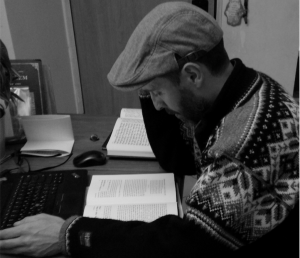Stubborn and Rebellious Rabbinical Hermeneutics
As I have been studying the topic of the “Stubborn and Rebellious Son” in the Sanhedrin Treatise of the Babylonian Talmud, the text has faced me with one of the most blatant examples of the rabbinical hermeneutical project, which is that of entirely re-reading the Biblical canon and, at times, gutting it with the sharp razor of their interpretational skills. In only fourteen pages of intense discussions, the clear-cut statements of the Bible with regard to the rightful punishment for a rebellious son are turned into nothing but senseless instructions, an inapplicable regulation for an unrealistic concept – the discussion takes on a series of very eclectic turns, as the Gemara endeavors to understand who is the “son,” how is a son different from a daughter and how old he has to be in order to be punishable, how extreme his behavior must be for him to become rebellious and stubborn. As the dispute deconstructs the idea of stubbornness and of what is a son, who is subject to legislation and at what age he becomes being so, the understanding of the case in question becomes less and less clear, and the idea of rebelliousness turns fuzzy and uncertain. This process eventually voids the original concept and turns it into an empty semantic container which the rabbis promptly replenish with their own understanding:
The mishna teaches that the boy does not become a stubborn and rebellious son unless he actually eats meat and drinks wine. The Sages taught in a baraita: If he ate any other food but did not eat meat, or if he drank any other beverage but did not drink wine, he does not become a stubborn and rebellious son unless he actually eats meat and drinks wine, as it is stated: “This son of ours is stubborn and rebellious; he will not obey our voices; he is a glutton and a drunkard.” And although there is no explicit proof to the matter, there is an allusion to the matter in another verse, as it is stated: “Be not among wine drinkers, among gluttonous eaters of meat” (Proverbs 23:20). And the verse states: “For the drunkard and the glutton shall come to poverty, and drowsiness shall clothe a man with rags” (Proverbs 23:21). That is to say, a person who is a glutton and a drunkard, and sleeps a lot due to his excessive eating and drinking, will end up poor and dressed in rags. (71a)
The Mishna therefore interprets the idea of rebelliousness as a phenomenon related with the unhindered consumption of meat and drinking of wine on the part of a boy who has just begun his puberty but is still too young to be defined “a man” – following their definition, the rabbis then go on to find a textual basis for their decision, and look for verses in the biblical canon for the combination of meat and wine. The formula “although there is no explicit proof to the matter” entails, in this sense, the rabbinical self-awareness and the clear understanding that their decision is partial, as are most of their hair-splitting disputes on the age of the boy and on his behavior. In this way, the process of taking a biblical regulation, gutting it of its relevance to the reality of human affairs, and then its redefinition within the framework of rabbinical social and interpretational standards actualizes, in a way, a rebellious attitude towards the Scriptural foundation, and the enactment of what we might call in a provocative way, their hermeneutical stubbornness.
*Yaakov Mascetti holds a Ph.D. and teaches at the Department of Comparative Literature, Bar Ilan University.

